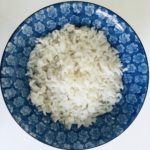You have eliminated gluten from your diet and you feel a lot better. You are very careful about what you eat, but you still have symptoms that you blame on gluten somehow sneaking into your food via cross-contamination or because you were not being careful enough. You may be frustrated or confused as to why you are still have reactions when you can’t figure out where the gluten could be.
Perhaps you are getting traces of gluten, but the reality may be that you are reacting to another food. That’s right — you may be sensitive to more than just gluten! It’s not a pretty thought to have to cut another food (or foods) out of your life, but it may make you feel a lot better.
My discovery
After I was gluten-free and felt dramatically better, my body and especially my digestive system, felt clean… I don’t know how else to describe it, but it just felt like there was no turmoil going on inside, like a glass of water without any bubbles. If I did get a trace of gluten, I knew it, and I would track down the source. But then there were times when I had cooked at home and knew that there was no way I could have gotten glutenized (I am sure they will be adding this word to Webster soon!), but still didn’t feel perfect.
After keeping a mental food diary — really paying attention to when I didn’t feel well and what I had eaten prior — I realized that I was blaming gluten for those days when my tummy was feeling, well, bubbly. But it wasn’t gluten at all. It was… drumroll, please… soy! Yes, folks, I do not eat soy anymore. I do eat a little wheat-free soy sauce sometimes and soy lecithin, but other than that, no soy. My daughter is soy-intolerant also, so there you have it — genes at work. Lucky girl… at least she got some of my good genes too: charm, good looks, etc. — ha ha!
I’m not the only one with multiple food sensitivities. In fact, on the celiac.com forum, there is a whole category called Other Food Intolerance and Leaky Gut Issues with people talking about how they have realized that they are intolerant to more than just gluten. This is no coincidence…
Leaky Gut Syndrome
A reason that people can develop more food sensitivities could be leaky gut syndrome, also known as increased intestinal permeability. A very simple explanation of what happens with leaky gut syndrome is this:
- Large spaces develop between the cells of the intestinal wall (due to many possible causes — see below).
- Bacteria, toxins, and incompletely digested proteins and fats leak in. Normally these larger molecules would be kept within the intestines, but because of these holes in the intestinal lining, they leak through the intestinal wall into the bloodstream, where they normally shouldn’t go.
- The immune system releases antibodies to fight what it sees as foreign invaders in the blood.
- These antibodies also attack the body’s own cells, causing damage, allergic reactions, pain and inflammation throughout the body.
What causes leaky gut?
Some of the possible causes of leaky gut syndrome are:
- Damage caused by taking non-steroidal anti-inflammatory drugs (NSAIDs), like ibuprofen
- Gastrointestinal disease, like celiac disease
- Eating allergenic foods
- Consuming alcohol
- Consuming caffeine
- Taking antibiotics
- Eating too much sugar
- Ingesting toxic chemicals
- Intestinal infection
- Parasites
- Stress
Food sensitivity can cause leaky gut, which can then cause other food sensitivities — it is a vicious cycle.
So, where do you go from here?
If you are gluten-free and you don’t know why you are still having reactions to the food you are eating, I would recommend that you keep a food diary — write down the time that you eat, what you eat, what symptoms you feel at what time of day. If you wake up in the morning and feel fine, and then have breakfast and feel rotten the rest of the day, examine everything you are eating in the morning, from coffee to juice to the milk you pour on your cereal. Once you think you know the problem food, cut it out and see how you feel. You can add it back in later and see if you react (please consult your doctor if you think you are at risk for a serious reaction to a food). In my case, after I cut soy out my diet, my lingering symptoms went away, and I have not wanted to try it again!
And what about that leaky gut? There are a lot of websites out there with advice about how to improve the permeability of your intestines. I am going to start doing some of these things for myself and my family in hopes of preventing more food sensitivities. Here are a few of the sites I found useful:
Liverdoctor.com
The Environmental Illness Resource
Dr. Weil
Leaky Gut Syndrome
Do you have more than one food sensitivity? Let me know in the comments… I’m curious!







Mike Andrews says
You likely know this, but there is a very simple and reliable blood test now available that tests for the most common allergens. It’s not quackery and has been shown to be highly valid:
http://www.questdiagnostics.com/destinationhealth/immunocap.html
I was given the test and found to be allergic (not just sensitive, but allergic!) to corn, soy, wheat, scallops, walnuts, peanuts, and cod. I additionally know of other allergens via experience such an anaphylaxis. Now you can actually test, reliably, for the most common allergens. I could never in a million years have found all the allergies through elimination due to the sheer numbers. But with the test, I’ve made radical changes in my diet. My gut has settled down (I’m off all stomach meds) plus my historic high blood pressure has returned to normal (another med I’ve stopped).
alison says
Thanks Mike,
This is a great resource for people to get allergy testing done! I wonder how many doctors are using this over the RAST blood test or skin-prick test?
Anne says
I have other food intolerances too – yeast, soy, egg white and casein. Yeast and gluten are the only two that cause strong, obvious, adverse reactions. If I had eaten GF yeast bread when I started the GF diet, I may have thought the diet was not working.
The Quest test is an IgE test. This is good for histamine reactions that cause immediate problems. Anaphylaxis and hives are two examples of IgE reactions. But some foods cause other immune reactions. US Biotek does IgG and IgE testing for foods. ALCAT tests blood reaction against antigens. Enterolab tests for IgA antibodies to a few selected foods. There are other labs.
I agree it is very important to identify all the foods that are causing problems. Finding these foods by a diet diary can be very difficult especially if the reaction is delayed.
Sandy Truslow says
My daughter did not feel any better until we saw an allergist who diagnosed her with euosinophillic disorder . The first food to eliminate was corn. Bingo then the eusinophillic cells disapeared from her nose. These go down into your intestine and cause problems. Now she is trying corn again after a year and a half to see if the cells will come back. Hopefully, not. I know three people diagnosed with this same problem in my small town. There has to be many more people with this problem.
There is only one allergist in Southern Maine diagnosing this problem. We had been to another allergist, with no satisfaction.
Natalie says
Right now my only food intolerance is gluten, but I strongly suspect corn (which is in everything). When I use cornstarch, I get hives, but nothing comes up on allergy tests. Yuck.
alison says
Anne,
You are right… a food diary may not work if reactions are delayed. I think it is good for young kids whose diets are not yet varied, so it is easier to tell what could be causing the problem, or for adults who only have reactions at certain times (versus all the time). Any of the allergy tests can produce false positives though… the only true test is what happens to the person when they eat it.
Sandy and Natalie,
I have been hearing more and more about corn allergy…
Sally Parrott Ashbrook says
I didn’t feel better from just giving up gluten alone when I tried to do that—and it turned out that I had severe allergies to wheat and cow dairy in addition to a moderate allergy to soy (and low-level allergies to a large number of foods). When I didn’t eat gluten, I was increasing my intake of those other things and making myself feel just as bad! The skin test didn’t work to find those out, either—it did take the blood test for latent allergies. (Not just the regular blood test, but the one specifically for latent allergies.)
Great info in your post!
Amy Bacher says
Sandy,
I was just diagnosed with euosinophillic disorder last August – due to corn as well. In Jan 07, after 2 years of being gluten free – I started getting sick again, but with different symptoms than gluten. After 7 loooong months of tons of tests & doctors – my gastro dr. found the euosinophillic disorder, and the allergist finally pinned down that it was corn. I hadn’t been able to figure it out on my own because I wasn’t having an immediate reaction.
Just to let ya’ll know – the test that revealed my allergies was a skin patch test. Concentrated pastes of about 36 different foods were put on little silver disks about the size of a nickel – and then taped to my back. after 48 hrs, i went back for the dr. to evaluate my skin reactions. another 24 hours later (72 hours exposure to the food pastes) i returned for the final evaluation. the dr. said that on a scale of 1-4, 4 being a major reaction – my “corn” site was at a 6. she actually had all the nurses come in to look and see just how severe the reaction is.
I was confused how this could happen – why it took 72 hours – but the dr. explained that sometimes it just takes that long for the body to “rally the troops to battle”. My body saw the corn as an invader – and was waging war on it. Makes sense then that I would seem to “randomly” get sick – turns out that the reaction was just happening 48-72 hours after I’d eaten corn.
It’s been almost a year of being completely corn free – even every single little derivative would set me off (i.e. citric acid used to preserve foods, xantham gum used in most gluten-free foods) and i have finally been able to tolerate very, very minute amounts. I’m now chewing gum again (sorbitol is from corn) and even had a few Reese’s miniature peanut butter cups (they have dextrose).
Just an FYI – the patch test also showed that I’m allergic to all oats (not just glutened-ones) and of course confirmed the wheat, rye & barley. Interestingly, in the middle of the year – I developed a sensitivity to rice as well. Had to completely delete that for 6 months. Have now re-introduced it back on a rotation schedule. Appears that my body can only tolerate certain levels of foods – and once I reach my max – it just rejects them altogether.
Hope my story helps someone!
Amy
Sheri says
I called Bear Granola to find out if their oats were cross-contam. The gentleman on the phone said that those who have gluten intolerance or allergy to gluten (or Celiac) should NOT consume soy either becuase of how soybeans are processed. I never heard/read that before and have not reasearched his statement either.
Comments?
Sheri says
I meant to say Bear Naked company.
karla says
I have multiple allergies too! My son and I have CD and are allergic to soy, dairy, & eggs. My son has to watch his sugar intake also, too much sugar and he has reactions. He only eats natural sugars (fruit, etc) but still have to watch out.
My sister has CD and has multiple allergies. She is allergic to gluten of course, soy, eggs, dairy, yeast, tree nuts (including coconuts), and still searching for more. She has neurological problems with her allergies. She can eat one of her allergens accidentally or unknowingly and it will cause her to have a seizure. She just gets a feeling come over her and it just paralizes her body for a few minutes to longer periods. I was wondering if there was anyone else with this happening to them. She is trying to get help but we are not having much luck in finding a Dr. who can help her.
Comments?
Thank you,
Karla
Peaches says
Hey Karla,
The same thing happens to me. Anytime I consume gluten, corn, rice, potatoes or dairy I have a seizure. It also causes me a lot of digestive problems. Doctors were not much help to me. Just kept giving me medication for the seizures, but it didn’t help. They just got worse. I rotated my diet by writing down everything I ate during the day and would write down if I had a seizure. Then I’d not eat the suspected food for a month, then eat it. If I had a seizure I stopped eating it. Worked for me — no seizures. Also there’s a blood test they have for intolerances like celiac disease. They test again pretty much every food. It’s called Imupro. Might be worth checking out.
stephen zets says
i hve had these smmtoms since april- eyes sore, burning runny nose, all over body itch, post nasual drip. i have all the allergy symtoms. now my sinus is going crazy. been to my doctor who tells me i have allergies. have taken all the meds. been to allergist, who said i had allergies. eye nose throat, the same. does anybody out there have any idea what i should do. thank you